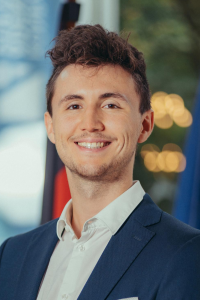What is the idea behind this project? The KAS Europe Security Snapshot is designed to provide concise and insightful analysis on a range of security issues, notably those that are currently prominent on the political agenda in Europe and others that are not yet being sufficiently addressed. Against the backdrop of the current geopolitical challenges and the advent of a new era for European security and defence, as indicated in the political guidelines of the new European Commission, the publication series aims to break down current trends in order to make them accessible to a wider audience. New briefings will be published several times per year.
What’s at stake?
- Preparedness: The integrity of Europe's security architecture is being challenged by malign foreign actors who seek to weaken it - in explicit ways, such as Russia launching an invasion of neighbouring Ukraine while threatening NATO and the EU with war; and in implicit ways, through cyberattacks, economic dependencies, disinformation, and other hybrid threats.
- European cooperation: Despite recent efforts to increase European cooperation, individual national efforts dominate arms procurement, investment, research and development. The result is a fragmented market, a lack of interoperability, and the inability to compete with outside powers in the defence field, both militarily and economically.
- Defence capabilities: Many European armies are no longer capable of national territorial and alliance defence, having been downsized in the past decades. Growing threats demand more effort, while not enough is being done to strengthen European overall defence capabilities.
- Visibility of security topics in the public sphere: Security is back on the agenda and is part of broader debates among European citizens. At the same time, many people are unfamiliar with the specific terminology and implications of international political developments, leading to generalised or misinformed exchanges - something we at KAS Europe aim to address with this series of briefings.
Conclusion
- The security landscape in which the EU and European countries find themselves has deteriorated in recent years. Major foreign actors are gaining ground in areas where knowledge and experience have been lost during the last decades of sustained peace, or where new threats are emerging as a result of technological, geopolitical and other developments. In addition, there is an increasing interconnectedness and interdependence of issues, making it difficult to isolate individual problems.
- With the Security Snapshot, the KAS European Office aims to untangle the often-confusing relationships between actors. Immersing in the evolving situation and the ongoing efforts of European states and institutions to address these issues together will be key to future work. We want to make the complicated international policy landscape and the multitude of interlocking and overlapping projects more comprehensible.
- In addition to the sub-themes already discussed, we believe that issues such as military deterrence, nuclear weapons, border security, space, NATO enlargement and regional security in the Black Sea, Mediterranean, Arctic, Baltic and Caucasus regions should be kept in mind.
- We look forward to integrating this project into our other work, combining elements of research with real-life exchanges and networks we continue to create. You are very welcome to help us sharpen and shape this additional format!




Bitte melden Sie sich an, um kommentieren zu können